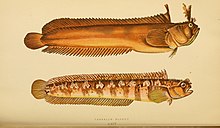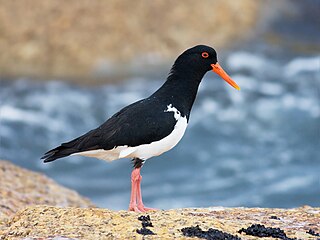
The oystercatchers are a group of waders forming the family Haematopodidae, which has a single genus, Haematopus. They are found on coasts worldwide apart from the polar regions and some tropical regions of Africa and South East Asia. The exceptions to this are the Eurasian oystercatcher, the South Island oystercatcher, and the Magellanic oystercatcher, which also breed inland, far inland in some cases. In the past there has been a great deal of confusion as to the species limits, with discrete populations of all black oystercatchers being afforded specific status but pied oystercatchers being considered one single species.

The willow warbler is a very common and widespread leaf warbler which breeds throughout northern and temperate Europe and the Palearctic, from Ireland east to the Anadyr River basin in eastern Siberia. It is strongly migratory, with almost all of the population wintering in sub-Saharan Africa.
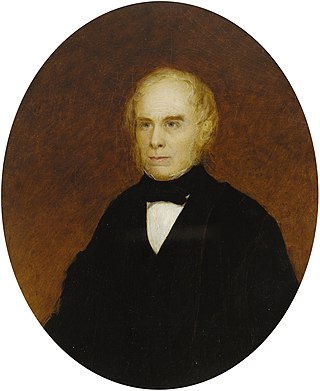
William MacGillivray FRSE was a Scottish naturalist and ornithologist.

Thomas Pennant was a Welsh naturalist, traveller, writer and antiquarian. He was born and lived his whole life at his family estate, Downing Hall near Whitford, Flintshire, in Wales.
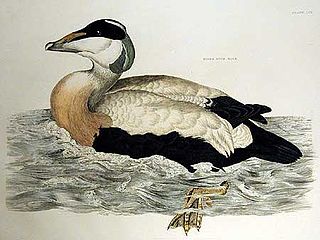
Prideaux John Selby FRSE FLS was an English ornithologist, botanist and natural history artist.

William Yarrell was an English zoologist, prolific writer, bookseller and naturalist admired by his contemporaries for his precise scientific work.

Sir John Richardson FRS FRSE was a Scottish naval surgeon, naturalist and Arctic explorer.
Robert Patterson, FRS (1802–1872) was an Irish businessman and naturalist born in Belfast, Ireland.

John Henry Gurney was an English banker, amateur ornithologist, and Liberal Party politician of the Gurney family.

The Zoologist was a monthly natural history magazine established in 1843 by Edward Newman and published in London. Newman acted as editor-in-chief until his death in 1876, when he was succeeded, first by James Edmund Harting (1876–1896), and later by William Lucas Distant (1897–1916).

The yellow-faced siskin is a species of finch in the family Fringillidae. It is found in Brazil and Venezuela.
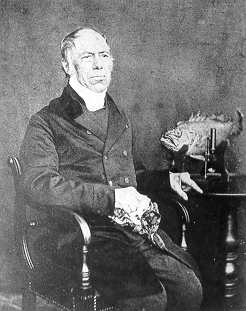
Jonathan Couch was a British naturalist, the only child of Richard and Philippa Couch, of a family long resident at Polperro, a small fishing village between Looe and Fowey, on the south coast of Cornwall. A blue plaque on the wall of Warren cottage commemorates his birthplace.

Bagarius yarrelli, also known as the giant devil catfish or goonch, is a very large species of catfish in the genus Bagarius found in rivers in the Indian subcontinent. The species reaches up to 2 m (6.6 ft) in length. It may be synonymous with B. bagarius.
Yarrella is a genus of lightfishes. It was named for the English naturalist William Yarrell..
John Van Voorst (1804–1898) was an English publisher of natural history books. His publications were noted for their good quality, reasonable prices and the frequent inclusion of superior illustrations by notable artists.
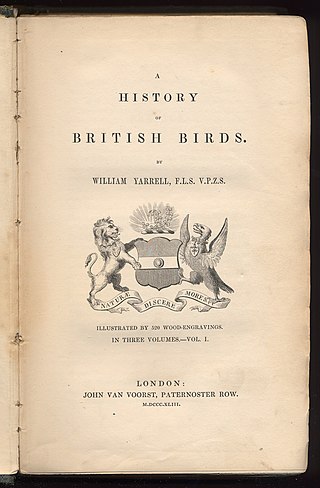
William Yarrell's A History of British Birds was first published as a whole in three volumes in 1843, having been serialized, three sheets every two months, over the previous six years. It is not a history of ornithology but a natural history, a handbook or field guide systematically describing every species of bird known to occur in Britain. A separate article of about six pages, containing an image, a description, and an account of worldwide distribution, together with reports of behaviour, is provided for each species.

John Thompson was a British wood-engraver. He is best known for his contribution to William Yarrell's 1843 History of British Birds. He was described as the most distinguished wood-engraver of his time.

A History of British Fishes is a natural history book by William Yarrell, first serialised in 19 parts from 1835, and then published bound in two volumes in 1836. It is a handbook or field guide systematically describing every type of fish known to occur in the British Isles, with an article for each species.
Laemonema yarrellii, the codling, is a deep sea morid cod from Madeira and the Great Meteor Seamount of the North Atlantic. It was named for the English naturalist William Yarrell.
